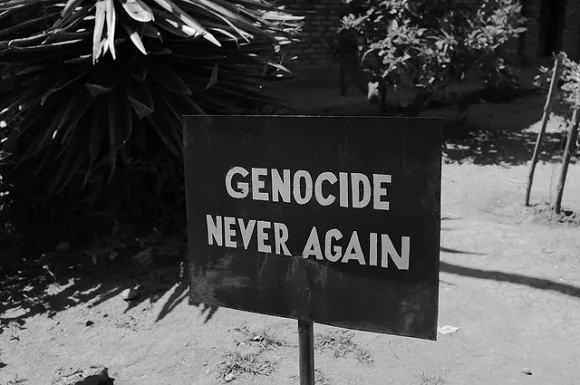The umbrella of genocide survivors, IBUKA, has expressed concern for the ongoing persecution and killings of Kinyarwanda-speaking Congolese in the DR Congo, particularly the Banyamulenge who are among the Tutsi community.
According to the statement released by the cluster of organizations such as IBUKA, AEGIS, AERG noted that the “intensifying violent attacks shown on video footage and social media and news articles are promoting hatred against and calling for the extermination of the Tutsi.”
“As we know from history, hate speech and violence against a particular group is one of the first stages of the Genocide and urgent action is needed to prevent this widespread violence from turning into another mass atrocity,” the statement said.
“We wish to recall that the identification of enemies of and naming of the people to be killed were tactics used by the hate radio RTLM and the Kangura newspapers in Rwanda before and during the Genocide against the Tutsi in 1994, it is extremely worrying to see similar tactics employed in DRC today” the statement added.
That, anti-Tutsi hatred is not a new phenomenon in the DRC, where it has developed over several decades against a backdrop of complex social economic struggles in the country, particularly in the North and South Kivu provinces.
Earlier this month, the United Special Adviser Alice Nderitu Wairimu described the ongoing violence as “a sign of the societal fragility and proof of enduring presence of the conditions that allowed large scale hatred and violence to erupt into genocide in the past”.
The UN’s special adviser said in a statement that he was “deeply concerned about the ongoing intercommunal violence in western DRC particularly in areas of the Suku, Mbala, Yansi, Songe, Luba, Kongo, Yaka and Teke ethnic communities.“
In the Eastern DRC, the current violence mainly stems from the refugee crisis that resulted as many individuals involved in the genocide against the Tutsi in Rwanda fled to the Eastern DRC forming armed groups such as the Democratic Forces for the liberation of Rwanda FDRL which is still active in the eastern DRC,” the statement noted.“
In response to the presence of these armed groups, new armed groups were formed and the failure to bring the non-state armed actors to book is the consequence we now see,” the UN special adviser added in the statement.
The special advisor noted in the statement that the findings of a solution in the Eastern DRC would require addressing the underlying cases of the violence and learning lessons from the past.Reiterating her 17 June 2022 statement issued jointly with high commissioner for Human Rights Michele Bachelet, Special Advisor Wairimu Nderitu expressed particular concern about the impact on civilians of the recent increase in hostilities between the M23 armed groups and the Armed Forces of the Democratic Republic of Congo (FARDC).



















